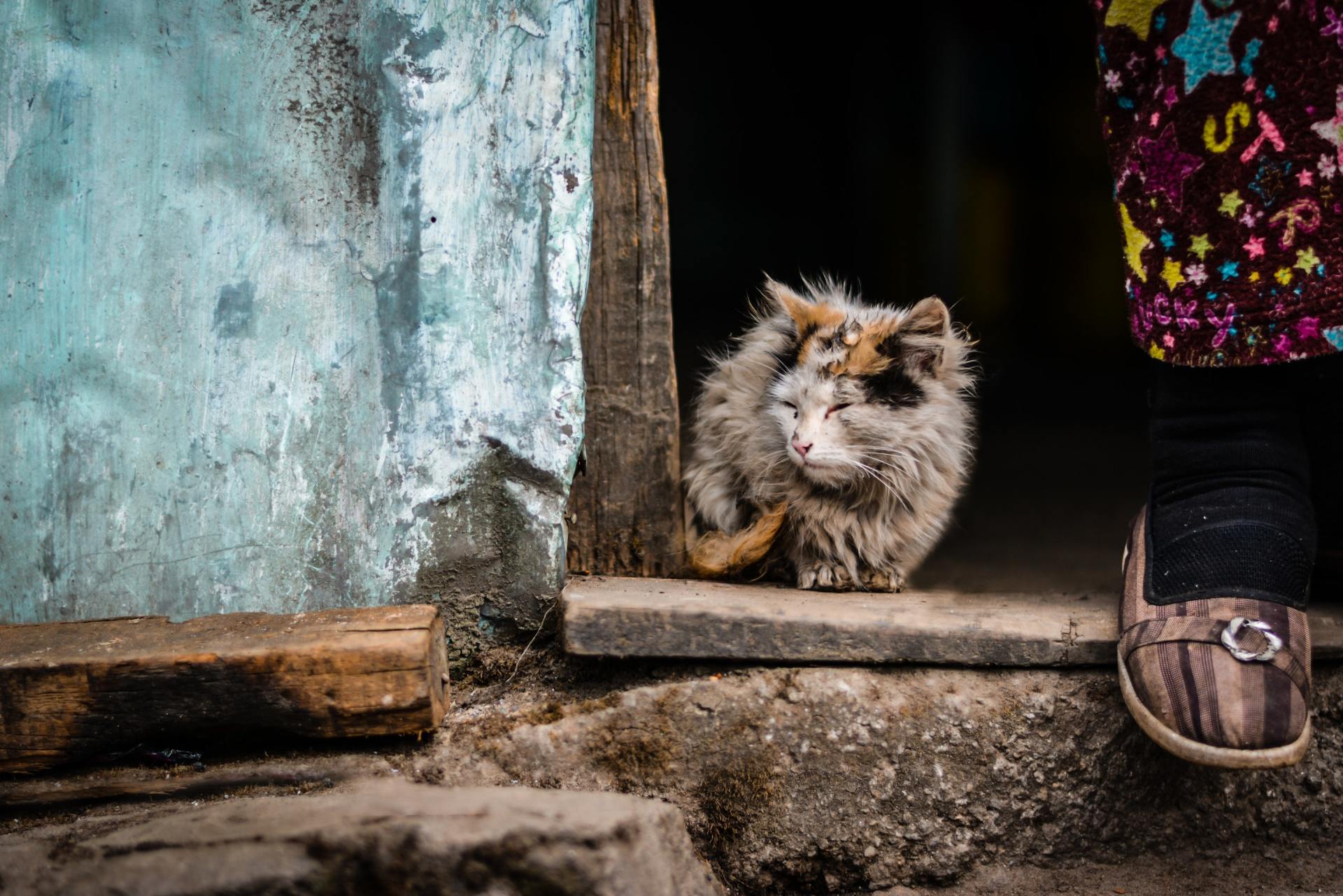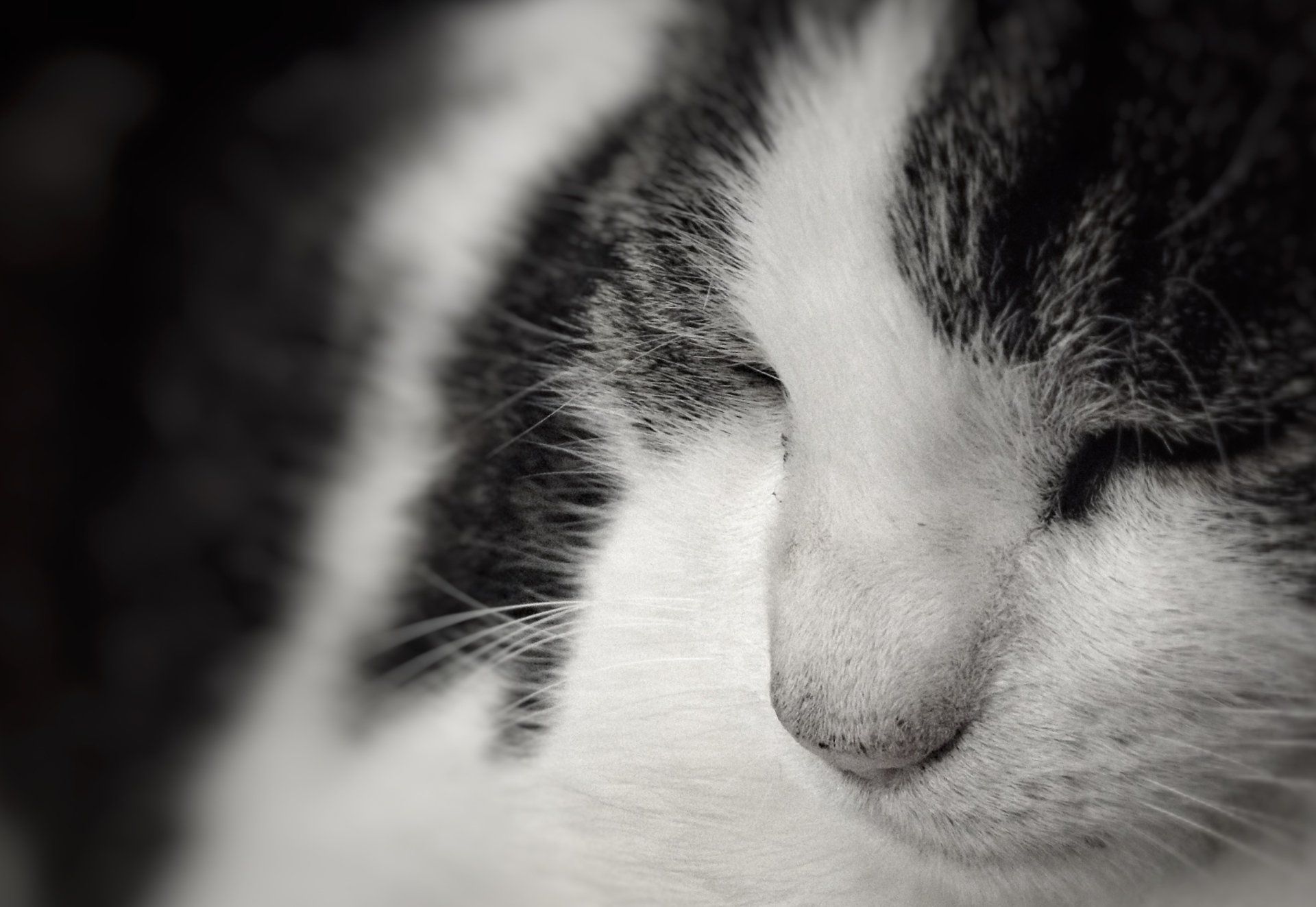Visit Our Online Shop
Follow Us
Bilton Veterinary Centre
259 Bilton Road
Rugby
Warwickshire
CV22 7EQ
Reception: 01788 812650
Repeat Prescriptions: 01788 817462
In-Patients: 01788 813498
CARE OF THE OLDER PET
Old age is inevitable, but some simple things can make the progression of time easier.
Old-age comes to all of us - including our pets too. As our animals get older, certain aspects of lifestyle will have to change to a certain extent and often even the most healthy of animals may begin to have problems later in life. As your animal gets older, it is sensible to make extra sure that he or she is in the best possible condition and that everything is being done to ensure they can continue to live as normal a life as possible.
What is the older patient?
"Old age" certainly doesn't suddenly arrive one day - and the phrase of "you are only as old as you feel" applies very much to animals too. The life-span of animals can vary tremendously. With dogs, small breeds tend to live longer than large breeds and cats often live longer than dogs. Small mammals such as Rats and Gerbils often only live for a few years at a time, where as at the opposite end of the spectrum - a tortoise can often live as long (or longer) than human beings.
As a result of this, we can only really say that old age occurs in the latter stages of an animals life. In essence Cats are generally classed as "old" once they are over 12 years old. Dogs are slightly more breed dependent - but large breeds are old over 7 years old, middle-sized breeds are old above 10-12 years old and smaller breeds are classed as old when they are over 12 years old.
How do I know when my pet is getting "old"?
Again, this is very subjective. Often it is the little things that you may notice - not as much energy as previously had, going a bit grey, getting a bit stiff etc. If you notice anything that is not in the pet's normal character, it is important to have him or her checked out first of all to make sure that there is nothing more serious going on. This is something we like to bring up at the annual vaccination and check-over.
What is the older patient?
"Old age" certainly doesn't suddenly arrive one day - and the phrase of "you are only as old as you feel" applies very much to animals too. The life-span of animals can vary tremendously. With dogs, small breeds tend to live longer than large breeds and cats often live longer than dogs. Small mammals such as Rats and Gerbils often only live for a few years at a time, where as at the opposite end of the spectrum - a tortoise can often live as long (or longer) than human beings.
As a result of this, we can only really say that old age occurs in the latter stages of an animals life. In essence Cats are generally classed as "old" once they are over 12 years old. Dogs are slightly more breed dependent - but large breeds are old over 7 years old, middle-sized breeds are old above 10-12 years old and smaller breeds are classed as old when they are over 12 years old.
Again, this is very subjective. Often it is the little things that you may notice - not as much energy as previously had, going a bit grey, getting a bit stiff etc. If you notice anything that is not in the pet's normal character, it is important to have him or her checked out first of all to make sure that there is nothing more serious going on. This is something we like to bring up at the annual vaccination and check-over.

What should I be doing different as my pet gets older?
Other than examining my pet physically, what else should I do?
A good examination of your pet is only half the story. You also need to look at the broad picture as well. Here are some good tips:
As your pet gets older, it important for you to carry out routine checks at home. Although this should be done all the way through the pet's life, it is extra especially important during those "retirement" years. Routine checks should include the following:
- Check the eyes for signs of cloudiness or runny eyes. What is the animal's general sight like?
- Check the ears for redness, pain or infection. Do you think that he or she may be deaf? (A common sign of deafness is that pets don't wake up when you come back into the house. They often wake with a "jump" when you touch them!)
- Have a good look at the teeth (if you can!). How much plaque if present? Are the gums red or sore?
- Run your hands over every inch of skin - can you feel any lumps or bumps that weren't there before? If they were there before, have they changed size, shape or appearance? Are they sore?
- Have a good look at the feet and claws - do they need clipping? Are they growing round and touching the pads?
- Always be careful if attempting to clip claws yourself - be aware that as animals get older, the blood vessels in the claws get closer to the end of the nail.
- Have a look at the coat. Is it dry, scaly is there much dandruff? Are there any patches of hair loss or thinning?
- Observe the animal closely when its walking or running - are there breathing changes, are there any signs of lameness.
Other than examining my pet physically, what else should I do?
A good examination of your pet is only half the story. You also need to look at the broad picture as well. Here are some good tips:
- What is the animal's weight like? Are they putting on weight - have you increased the food recently or are they getting less exercise. Has the animal become thinner recently? With small animals it is possible to weigh them at home - stand on the bathroom scales holding the animal of the floor, and read the combined weight. Then just weight yourself and subtract this from the previous figure. Obviously with larger animals this isn't possible unless you are feeling very strong. The nurses are always willing to weigh animals at the practice using our special scales.
- What is the animal's appetite like? What food are you feeding it? Are you feeding the correct food for the age of the dog? Many pet food companies make senior diets that are better suited to the older animal.
- What is the animal's thirst like? Have you noticed that you are filling the bowl up more often - perhaps you have noticed that he or she is having a wee more often, or not making it through the night without needing to go out and spend a penny?
- What is he or she like when going for walk? - is it still enjoyable, are they getting easily tired or out of breath. Is there any reluctance to go out for a walk.

What do I do if I am worried?
A lot of age-related changes are nothing to worry about - they are part of normal life. However illness and disease does become more common the older the animal gets. If you are concerned you should bring the animal to see a vet or a nurse - if nothing else, your mind may be put at rest.
We always include a full examination including a full history of any changes with the animal, when the animal comes in for yearly vaccination and check-up. Think of it a bit like an "M.O.T"!
For routine health care of the elder patient, weight checks, dental checks and general advice, the nurse clinics are often a good way get a lot of useful information and support. Our nurse clinics and weight clinics are free!
A lot of age-related changes are nothing to worry about - they are part of normal life. However illness and disease does become more common the older the animal gets. If you are concerned you should bring the animal to see a vet or a nurse - if nothing else, your mind may be put at rest.
We always include a full examination including a full history of any changes with the animal, when the animal comes in for yearly vaccination and check-up. Think of it a bit like an "M.O.T"!
For routine health care of the elder patient, weight checks, dental checks and general advice, the nurse clinics are often a good way get a lot of useful information and support. Our nurse clinics and weight clinics are free!

Quick Links
Contact Us
Bilton Veterinary Centre
259 BIlton Road
Rugby
Warwickshire CV22 7EQ
Tel: 01788 812650
email: enquiries@biltonvets.co.uk
Opening Hours
- Monday
- -
- Tuesday
- -
- Wednesday
- - -
- Thursday
- -
- Friday
- -
- Saturday
- -
- Sunday
- Closed